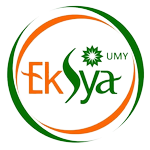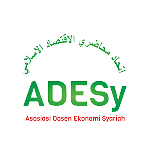The Impact of Industrial Era 4.0 and Social Media Marketing on Zakat Payments: A Study of E-Commerce and Online Applications by Zakat Institutions Bogor
DOI:
https://doi.org/10.18196/jiebr.v3i1.74Keywords:
Digitization of Zakat, E-Commerce, Modern Behavior, Online Payment, Social Media MarketingAbstract
This study aims to determine the potential of the 4.0 era and the influence of social media marketing activity on online zakat payments through e-commerce and online applications for zakat institutions in terms of the opinions and knowledge of the people of Bogor Regency and City. The data collection technique was done through direct interviews with 35 respondents aged 17-55. The determination of respondents used a purposive sampling technique. This study used a descriptive qualitative method. The primary data was obtained by distributing questionnaires online to respondents, and secondary data was brought based on a literature review. The data analysis was conducted by collecting information from primary and secondary data and then processed to the drawing conclusion. The results of the study show that some people who choose to pay Zakat online have several reasons, such as still wanting to empower the surrounding environment, so to pay Zakat maal, they prefer to pay offline because they can also stay in touch with neighbors and amil zakat. But many of them agree and support the use of social media marketing activity because it is easier and more practical to implement.
References
Adetunji, R. R., Mohd Rashid, S., Mohd Ishak, S. (2018). Social Media Marketing Communication and Consumer-Based Brand Equity: An Account of Automotive Brands in Malaysia. Malaysian Journal of Communication, 34(1), 1–19. https://doi.org/10.17576/JKMJC2018-3401-01
Afiyana, I., Nugroho, L., Fitrijanti, T., & Sukmadilaga, C. (2019). Tantangan pengelolaan dana zakat di indonesia dan literasi zakat. 222–229. https://doi.org/10.29264/jakt.v16i2.6013
Amarodin, M. (2020). Modernisasi Penghimpunan Dana Zakat Di Era Industri 4.0 (Upaya Strategis dalam Optimalisasi Potensi Dana Zakat di Indonesia). Eksyar: Jurnal Ekonomi Syari’ah & Bisnis Islam, 7(01), 65–79.
Anggraeni, R., Layaman, L., & Djuwita, D. (2019). Analisis Pemanfaata Social Media Marketing Terhadap Customer Loyalty Yang Menggunakan Brand Trust Sebagai Variabel Mediasi. Jurnal Riset Manajemen Dan Bisnis (JRMB) Fakultas Ekonomi UNIAT, 4(3), 445-456445–456.
Dewi, P. S. A., & Suprapti, N. W. S. (2018). Membangun Loyalitas Pelanggan Melalui Kepuasan Yang Dipengaruhi Oleh Kualitas Produk, Persepsi Harga Dan Citra Merek (Studi Pada Produk Smartphone Merek Oppo). Matrik: Jurnal Manajemen, Strategi Bisnis dan Kewirausahaan, 87. https://doi.org/10.24843/MATRIK:JMBK.2018.v12.i02.p01
Fitrah, M. (2018). Metodologi penelitian: Penelitian kualitatif, tindakan kelas & studi kasus. CV Jejak (Jejak Publisher).
Handaruwati, I. (2018). Pengaruh Media Sosial Terhadap Penjualan Produk Camilan Lokal Secara Online. BBM (Buletin Bisnis & Manajemen), 3(1), Article 1. https://doi.org/10.47686/bbm.v3i1.36
Hasan, Z. (2021). Making Indonesia as Integrated Halal Zone and World Halal Sector Hub Through the Implementation of Halal Supply Chain. Journal of Islamic Economic and Business Research, 1(1), 1–14. https://doi.org/10.18196/jiebr.v1i1.11529
Hasan, Z., & Kamiluddin. (2021). Digital Zakat Fundraising in Times of Covid-19 Pandemic: Evidence from BAZNAS, Indonesia. Journal of Islamic Economic and Business Research, 1(2), 202–215. https://doi.org/10.18196/jiebr.v1i2.1
Ibrahima, M. F. (n.d.). LJMS 2020, 14 Labuan E-jurnal Muamalat Dan Masyarakat. 16.
Jauzi, A. Q. Al, & Zakiy, M. (2021). Analisis Tingkat Kepercayaan Masyarakat terhadap Dana Donasi pada Uang Kembalian Belanja di Alfamart. Prosiding UMY Grace, 273–281. https://prosiding.umy.ac.id/grace/index.php/pgrace/article/view/246
Khasanah, M., SR HS, M., & Sutrisno. (2022). Linking Sharia Bank Corporate Image and Customer Trust with Customer Switching Intention: The Mediating Role of Customer Loyalty. Journal of Islamic Economic and Business Research, 2(2), 220–234. https://doi.org/10.18196/jiebr.v2i2.81
Kusuma, B. A., & Putri, B. P. S. (2019). Pengaruh Social Media Marketing Terhadap Brand Equity. Jim Upb, 7(1).
Lubis, R. H., & Latifah, F. N. (2019). Analisis Strategi Pengembangan Zakat, Infaq, Shadaqoh dan Wakaf di Indonesia (Analysis of Zakat, Infaq, Shadaqoh and Wakaf Development Strategies in Indonesia). Perisai : Islamic Banking and Finance Journal, 3(1), 45. https://doi.org/10.21070/perisai.v3i1.1999
Mairafi, S. L., Yahaya, S., & Maishanu, A. M. (2022). ZakÄtÄbility from the Salary of Muslim Civil Servants in Nasarawa State, Nigeria. Journal of Islamic Economic and Business Research, 2(1), 29–38. https://doi.org/10.18196/jiebr.v2i1.48
Noermawati, J., Pratiwi, A., Rozikan, & Zakiy, M. (2018). Pemberdayaan kelompok hadroh dalam peningkatan status sosial dan ekonomi masyarakat di Indonesia. Prosiding Seminar Hasil Pengabdian (SNP2M), 2018, 399–404.
Prasetyo, H., & Sutopo, W. (2018). Industri 4.0: telaah klasifikasi aspek dan Arah perkembangan riseT. Jati Undip: Jurnal Teknik Industri, 13(1), 17. https://doi.org/10.14710/jati.13.1.17-26
Prayudi, M. A., Dewi, G. A. K. R. S., Vijaya, D. P., & Ekawati, L. P. (2018). Teori Peran dan Konsep Expectation-gap Fungsi Pengawasan Dalam Pengelolaan Keuangan Desa. Ekuitas (Jurnal Ekonomi dan Keuangan), 2(4), 449–467. https://doi.org/10.24034/j25485024.y2018.v2.i4.3931
Rozikan, & Zakiy, M. (2019). Pengaruh Religiusitas Dan Tanggung Jawab Sosial Terhadap Etos Kerja Islami Pada Karyawan Lembaga Filantropi. ISLAMADINA: Jurnal Pemikiran Islam, 20(2), 191–209. http://irep.iium.edu.my/44744/
Santoso, I. R. (n.d.). Strategi Optimalisasi Digitalisasi Zakat dalam Pengentasan Kemiskinan di Era Revolusi Industri 4.0. 26.
Seo, E.-J., & Park, J.-W. (2018). A study on the effects of social media marketing activities on brand equity and customer response in the airline industry. Journal of Air Transport Management, 66(C), 36–41.
Shuaib, A. J., & Badmus, S. S. (2022). Al-GhazÄlī’s Perspective of Salam and Its Relevance to E-Commerce in Nigeria. Journal of Islamic Economic and Business Research, 2(2), 156–171. https://doi.org/10.18196/jiebr.v2i2.62
Tong, T. K. P. B. (2020). Analisa Pengaruh Social Media Marketing Terhadap Repurchase Intention Melalui Brand Trust Sebagai Variabel Mediasi Pada Instagram Adidas Indonesia Di Surabaya Jurnal Strategi Pemasaran, 7(1), 10.
Wijaya, R. H., & Khotijah, S. A. (2020). Memasuki Era Revolusi Industri 4.0: Suatu Tinjauan
Strategi Amil Zakat Di Indonesia. Equilibrium : Jurnal Ilmiah Ekonomi, Manajemen dan Akuntansi, 9(2). https://doi.org/10.35906/je001.v9i2.569.
Willem, A., Tumbel, A. L., & Samadi, R. L. (2020). Analisis Efektivitas Marketing Media Sosial Facebook Terhadap Keputusan Pelanggan D’brothers Laundry. 10.
Zakiy, M. (2019). Citra Perusahaan Sebagai Variabel Pemoderasi Pengaruh Layanan Terhadap Kepuasan Pasien Dan Niat Beralih. Jurnal Manajemen Dan Pemasaran Jasa, 12(1), 51. https://doi.org/10.25105/jmpj.v12i1.3149
Zakiy, M., & Rozikan. (2020). Establishment of KUB as Alternative to Economic Independence of Pedak Society, Srandakan, Bantul. Jurnal Pemberdayaan Masyarakat Madani (JPMM), 4(2), 187–201. https://doi.org/10.21009/JPMM.004.2.03
Downloads
Published
How to Cite
Issue
Section
License
Copyright (c) 2023 Journal of Islamic Economic and Business Research

This work is licensed under a Creative Commons Attribution-NonCommercial 4.0 International License.
Journal of Islamic Economic and Business Research has CC-BY NC or an equivalent license as the optimal license for the publication, distribution, use, and reuse of scholarly work for non-commercial purpose. The non-commercial use of the article will be governed by the Creative Commons Attribution license as currently displayed on Creative Commons Attribution-NonCommercial 4.0 International License
Creative Commons License




